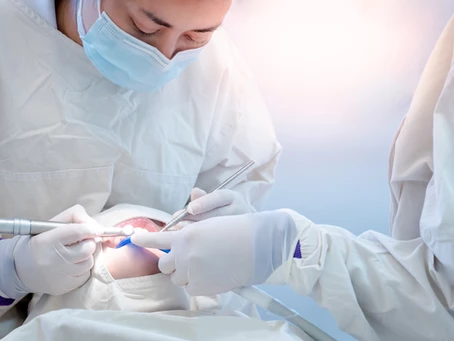It might happen on the playing field, it could be on the highway, or even when you’re lying in bed at night. Dental Emergencies can happen almost anywhere and in many cases, how you respond to an emergency can have a big impact on your oral health and your smile. Would you know what to do when an emergency occurs? We’re going to give you some basic guidelines. But first, please be aware that if there are symptoms of a life threatening emergency, such as severe pain, uncontrollable bleeding, shortness of breath, dizziness with chest pain or loss of consciousness, it’s important to go to an emergency room right away.
Fortunately, most dental emergencies aren’t quite that serious, but many still need prompt care. Let’s take a look at exactly how fast you have to act to get the best results in different emergency situations. With a knocked out permanent tooth for example, minutes count. The missing tooth should be quickly located, rinse gently with water and if possible placed back in its socket. If that isn’t impossible, the tooth can be placed in saliva or milk, then you should rush to the dental office or emergency room. The sooner a tooth is properly reinserted, the better the chances of saving it.
Baby teeth are not put back in the socket because this could harm permanent teeth developing beneath the gum. In some urgent situations, you have a little more time to act. If the tooth is still in the mouth, but has been displaced or moved, or if it is deeply fractured, you have a window of about six hours to get treatment. For this type of injury, it’s often better to seek treatment at the dental office instead of an emergency room. That’s because Dentists have the ability to use a wide range of tools and techniques from special root canal instruments to stabilizing splints that can be bonded to teeth, which may not be available in an emergency room.
Many common dental injuries respond well when treatment is given up to 12 hours later. These include teeth that are chipped, cracked, loosened or painful. In these cases, there’s usually time to make an appointment at the dental office. In many cases, chipped and cracked teeth can be successfully restored via Cosmetic Bonding. If possible, save any broken pieces of the tooth and bring them with you when you come in.
Loose teeth may not require treatment right away, but will be closely monitored. What about severe tooth pain, the kind that strikes in the middle of the night and doesn’t let up? This is often a sign that decay causing bacteria have infected a tooth, but it could also result from several other causes. The only way to know for sure is to have an examination as soon as possible. You never know when a dental emergency may strike, but a little preparation can go a long way toward ensuring that you get the best outcome.


